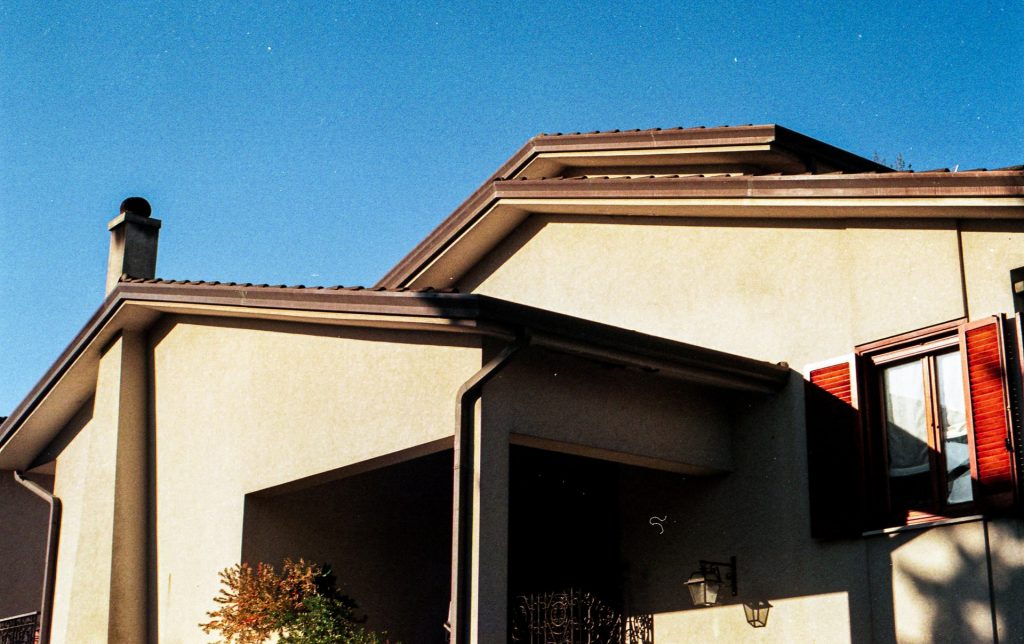When gutter overflow occurs, it causes extensive damage to your home and property. This is because rainwater can leak into the building through cracks or gaps around windows, for example; this creates stability issues that lead directly to costly repairs.
If you experience gutter overflow, don’t despair! There are some simple steps you can take to fix the problem. But first, let’s discuss what is gutter overflow before going on the causes as well as the tips for preventing it.
What Is Gutter Overflow?
Gutter overflow is a condition that can occur when gutters become clogged with debris. When this happens, rainwater is unable to properly drain away from your home, and it can lead to a number of problems.
The effects of a gutter overflow are not just limited to your property. The water that leaks into the ground around our foundation can cause serious problems over time, including cracks and settling, which could lead all way up to flooding! In addition, excess moisture near your home might also create an ideal environment for mould or mildew growth too, so important preventative measures always take place before anything happens
Gutter overflow can lead to a serious problem called wood rot. This occurs when water leaks down the sides of your home and gets trapped in areas like behind gutters or under porches. These porches are often made out of softwood platforms that will eventually break down, due to being wet all day long every single work week.
What are some things that can cause your gutters to overflow? Most people think of debris as the primary clue, but there are several different things that can block your gutters and cause them to overflow.
Causes of Gutter Overflow
There are a few different reasons that your gutters may overflow. Below we’ll take a look at some of the most common offenders:
1. Clogged Gutters
You might think that the most common cause of gutter overflow is simply having them clogged with debris, but you’d be wrong! Over time leaves and twigs can build up in your gutters, preventing water from flowing through properly.
2. Poorly Designed Gutters
Gutter overflow can be caused by either too little capacity or an improper design. If you have large gutters that are not deep enough, they won’t hold all of the water during a rainstorm and eventually, it will pour down into your guttering system.
The other common issue with gutters is if their pitch isn’t correctly aligned; this leads to pooling in those areas which then causes them to overflow.
3. Lack Of Maintenance
One of the most common reasons for gutter overflow is not cleaning them out on a regular basis. If dirt and debris build up in your gutters, they will be unable to do their job properly, which can cause water pressure problems or leaks that send excess rainwater flowing down onto the property below. Inspections are also necessary so we don’t miss any issues before it’s too late!
Prevention Of Gutter Overflow

Your home’s gutters are important for more than just keeping the rain off your head. Properly functioning gutters play a crucial role in preventing water damage to your home. When they become overwhelmed with debris or clogged with ice and snow, they can overflow and cause serious damage. Fortunately, there are a few things you can do to help keep your gutters from overflowing:
1. Regular Cleaning & Maintenance
One of the most important things to do for your gutters is to keep them clean and well-maintained. This includes removing any debris that has accumulated in them on a regular basis, as well as inspecting it regularly so you can catch leaks or other damages before they become worse than what’s already there.
Gutters offer great protection against water damage, but if not maintained correctly, then this benefit may be lost.
2. Proper Gutter Design & Installation
Another way to prevent gutter overflow is to make sure they’re properly designed and installed. This means having gutters that are the right size for your home and pitched correctly so that water can flow through them properly. Also, be sure to have a professional do the job when having new gutters installed.
If you’re looking for a one-stop solution for your guttering needs, you can contact a guttering Ipswich supplier or a depot in your area. Go for one that offers a complete gutter replacement service, from removing your old guttering to installing new gutters and downpipes.
3. Use Of Gutter Guards Or Covers
Gutter guards are an excellent way to prevent your gutters from overflowing. The specially designed covers allow water runoff but redirect it away so you don’t have any problems with wet areas around the exterior of your home or property.
The use for these types of devices isn’t just limited when there’s snow on top. They’re also helpful during times when heavy rains could cause flooding within those lines which would ultimately lead to an overflowing disaster.
The next time it rains, and you see the water overflowing from the gutters, remember that it’s not just a pretty sight. It means that your home is at risk for water damage, and the repair bill can be expensive. Take a few minutes to clean out the gutters, and you’ll save yourself a lot of hassle down the road.
Gutter overflow can be a pain to deal with, but hopefully, with these tips, you can avoid it entirely!

